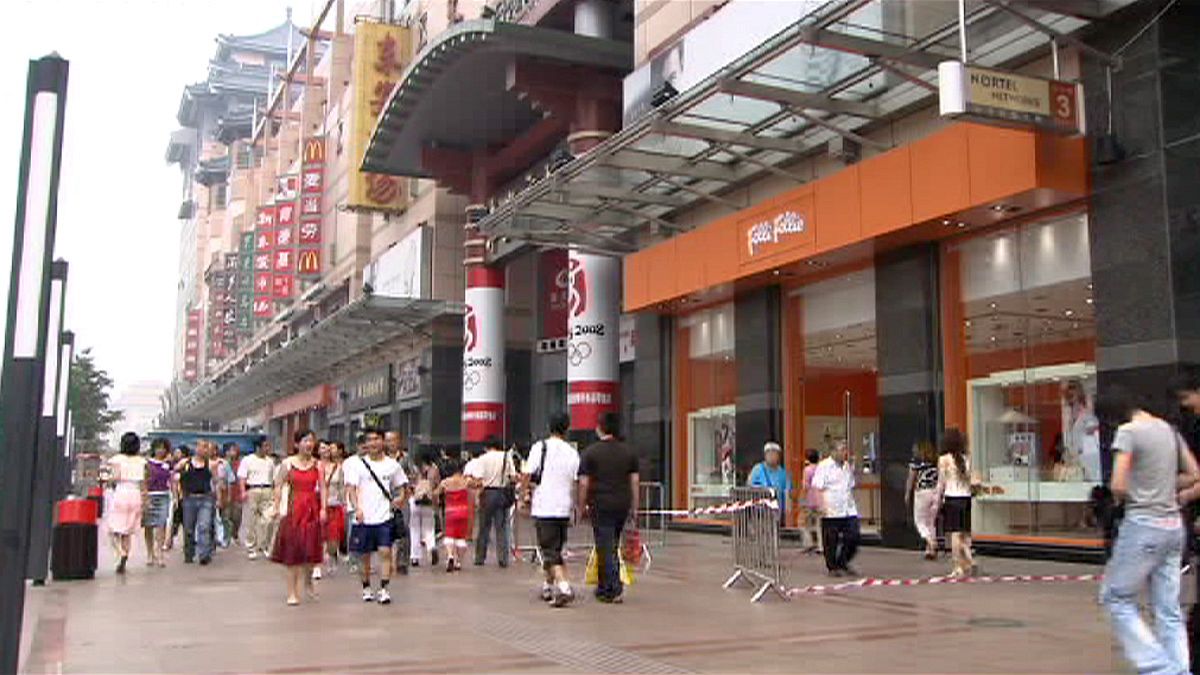Do you think your country’s politics are tough? Try China, population 1.3 billion. This is the Communist Party’s 18th Congress, where it just got new leaders. They must govern a country richer but gigantically more complex than ever.
Economic growth in the last three decades has been around ten percent per year. While that certainly developed China, raised incomes and beat back poverty, but the social divide between rich and poor today is staggering. Under the outgoing leadership, the gap narrowed but 13 percent of the country still live on less than one euro per day.
That’s 169 million people. At the same time China has a lot of millionaires: 2.7 million, and billionaires – more than 250 and climbing. These figures are from the UN and rich list magazine the Hurun Report.
Beijing set aside some 66 billion euros over the past five years to fund minimum livelihood allowances for the worst off. State benefits have eased suffering, but social experts and politicians are well aware that inequality can fuel instability. With numbers on the scale of China, the leaders take that seriously.
They recognise the real risk of corruption. Just days before the opening of the Party Congress in Beijing, former high-flying politician Bo Xilai was expelled. The scandal of a series of wrongdoings attributed to him also include trying to cover up his wife’s murder of a British businessman. Anything that undermines the single ruling party’s legitimacy is considered a danger.
The New York Times said last month that the family of Premier Wen Jiabao had accumulated more than two billion euros worth of “hidden riches”. Beijing dismissed the allegation. But it appeared to illustrate connections between people in high places with those using state influence for private gain.
Ordinary people are demanding to be heard, such as last month in the northeastern city of Ningbo. Pollution fears moved them to protest plans to expand a local petrochemical factory. As they had been told officially that it would not go ahead, it showed the deep mistrust of government. Popular challenges to new investment projects like this, upsetting social stability, add to the complications facing the new generation of Chinese policy makers.
We asked China expert Roderic Wye, at the Royal Institute of International Affairs, Chatham House, in London, what he thought about Beijing’s priorities, and the big changeover at the very top.
Ali Sheikholeslami, euronews:
With a widening gap between the rich and the poor in China, social contradictions are increasing. But there was an emphasis on social harmony at the opening of the Party meeting. Is this just a play on words or is the Chinese leadership taking this seriously?
Wye:
I think they are taking it seriously. I mean one of the key-notes of the leadership of Hu Jintao and Wen Jiabao was emphasis on the poorer people in China. They pride themselves on the number of people taken out of poverty in last ten years, on the extension of welfare to many people in China. But at the same time the wealth gap has risen enormously and there are real and worrying disparities in China. There are real questions over the growth and pace of the Chinese economy. The world economy is not in a very good position and there are rising problems of discontent in China.
euronews:
What do we know about the background of Xi Jinping? What propelled him to this position?
Wye:
There will be some speculation about what sort of style the new General Secretary will adopt. I mean, his background is that he is the son of a famous revolutionary, he has served in a number of very senior provincial positions, mainly in the rapidly developing east coast of China. He was first really singled out for this five years ago, at the last Party Congress, when he was elected to the Politbureau’s Standing Committee. And it was clear that he was at least a very strong candidate for a very senior position five years down the line. And most of this last five years have been a sort of apprenticeship for him. It was very much part of a grooming process of getting the new Chinese leader ready for his job and getting the world ready for the new Chinese leader.
euronews:
President Hu Jintao said the serious challenge of corruption should be handled, otherwise it might be fatal to the Communist Party. But isn’t this what they said ten years ago? Has anything changed?
Wye:
They have said this a number of times and they used very similar formulation about the seriousness of the threat of corruption. And of course, it has been exemplified most recently by the Bo Xilai case – who is accused of really serious corruption and abuse of power. I think what the leadership are trying to do is first of all accept that corruption is a serious problem in China, secondly try to show that the Bo Xilai case is an Isolated case as far the leadership themselves are concerned – there is only one like him, and the rest of the party is now taking this problem really seriously. But the problem is that they have used these words before. They have had a number of high profile cases. Bo Xilai is not the only one. There is the former Minister of Railways, who was recently expelled from the Party for similar things. But it is still an endemic part of the way that China runs.
